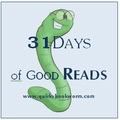Robert Oliver, a fairly famous artist, abruptly attacked a canvas in the National Gallery in Washington DC and ended up in psychiatric care. Psychiatrist Andrew Marlow, an amateur artist himself, has tried to treat Oliver, but cannot seem to get anywhere. For two weeks Oliver's been in Marlow's care but hasn't said a word. Over and over again he keeps painting the same woman, and in his possession he has a bundle of letters from the 19th century; letters from a woman named Beatrice to her uncle.
Marlow goes to the National Gallery to see the painting that Oliver tried to slash. It's an Impressionist portrait of Leda {according to Greek mythology she was raped by Zeus in the form of a swan}. The painting is haunting, and Marlow becomes more and more intrigued by Oliver, and his strangeness. He decides he needs to understand more about the women in Robert's life in order to understand Oliver, so he goes first to visit his ex-wife Kate, then his lover, Mary. Along the way Marlow learns not only about Robert Oliver, but about art, obsession, and love.
This book was vastly different from Kostova's first novel The Historian, which was sort of like The Da Vinci Code, but about vampires instead of monks. Like The Historian, The Swan Thieves
It's a lovely, quiet sort of a book. Not much actually happens during the timeframe of Marlow's delving into Oliver's life-- the book is told in retrospective stories from the points of view of Marlow, Kate, Mary, and the mysterious Beatrice. Kostova uses these viewpoints to present Robert Oliver from different angles, allowing the reader to combine them into one portrait of the man. The plot reflects the Impressionist works so frequently referenced in the book -- the up-close minutiae of people's lives combine into a broad, beautiful picture of the meaning of love and the power of art. I highly recommend the audio book version, if you don't mind the length, but I'm sure the print version is equally as enjoyable.
Rating: 4 out of 5
Should I recommend this to my grandma: Sure!
Have you read Elizabeth Kostova?
Or any other fictional books where artists/art feature?
The book image and title are Amazon affiliate links.


